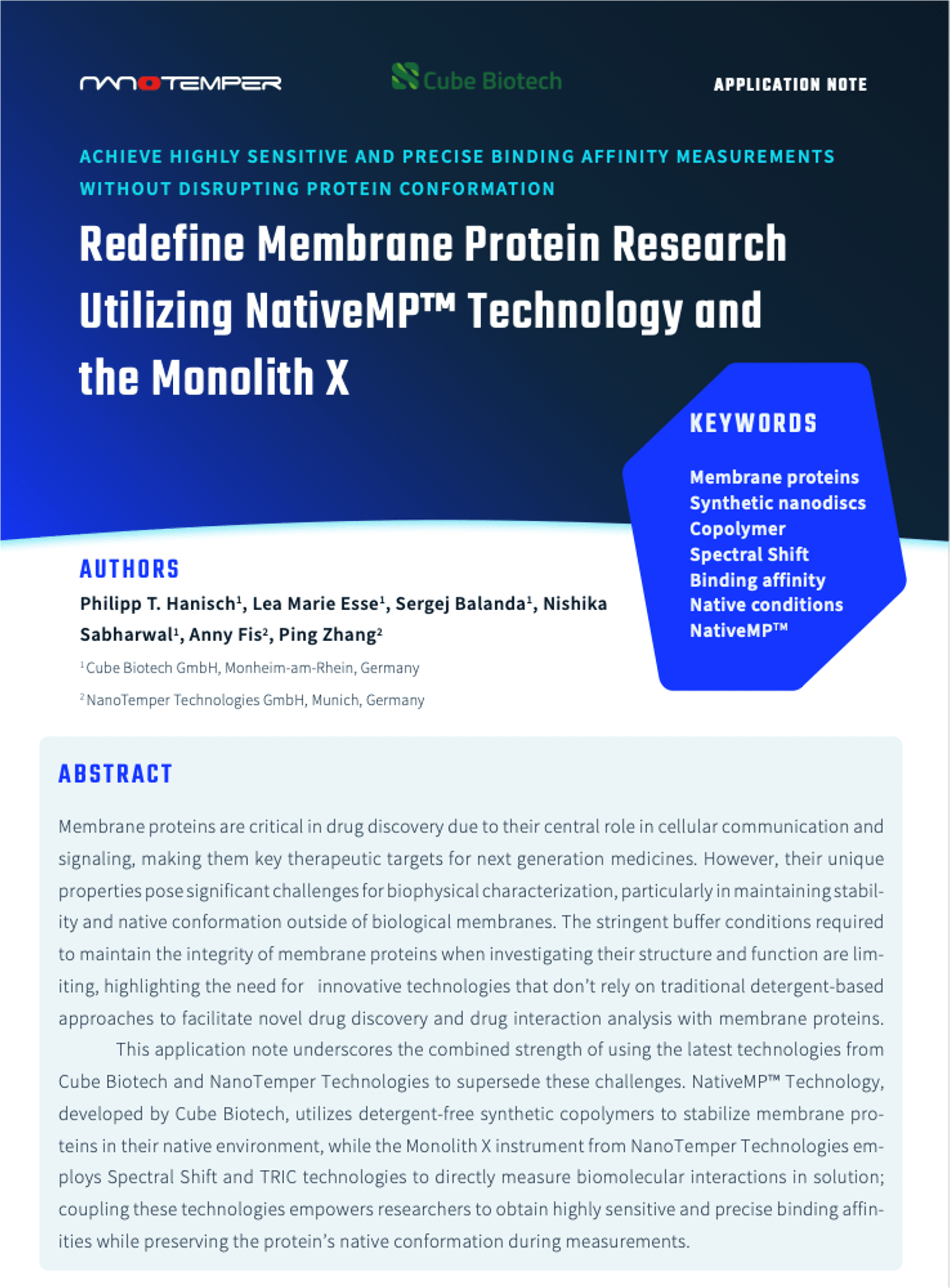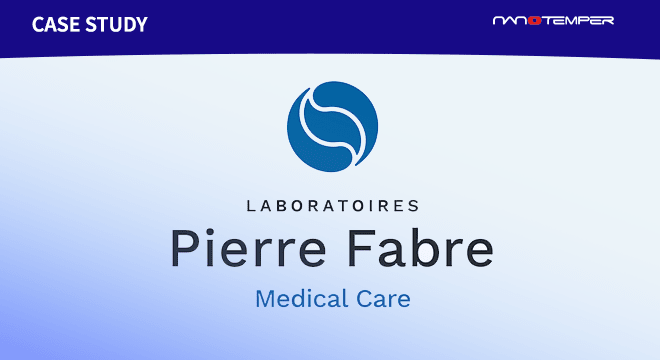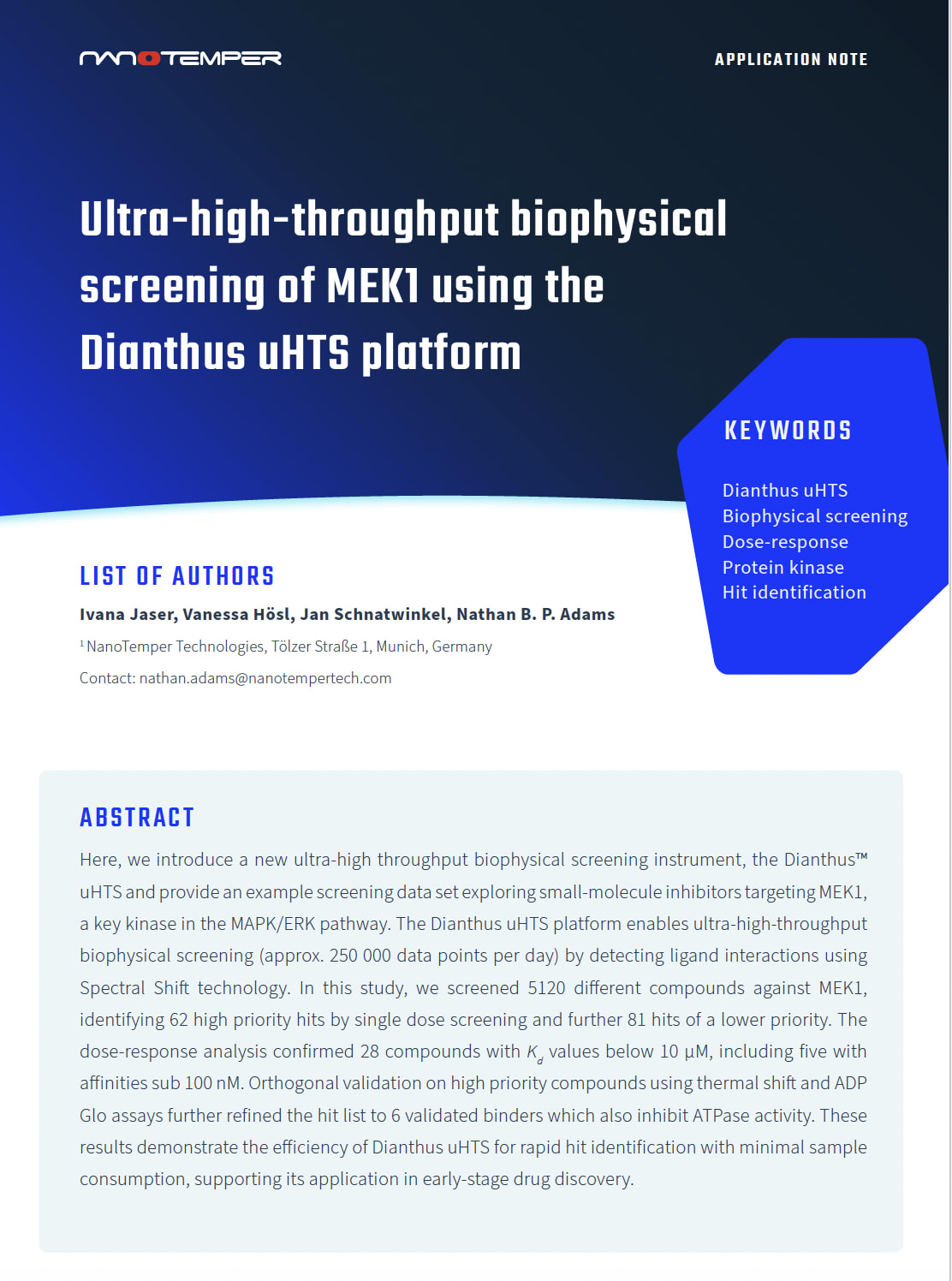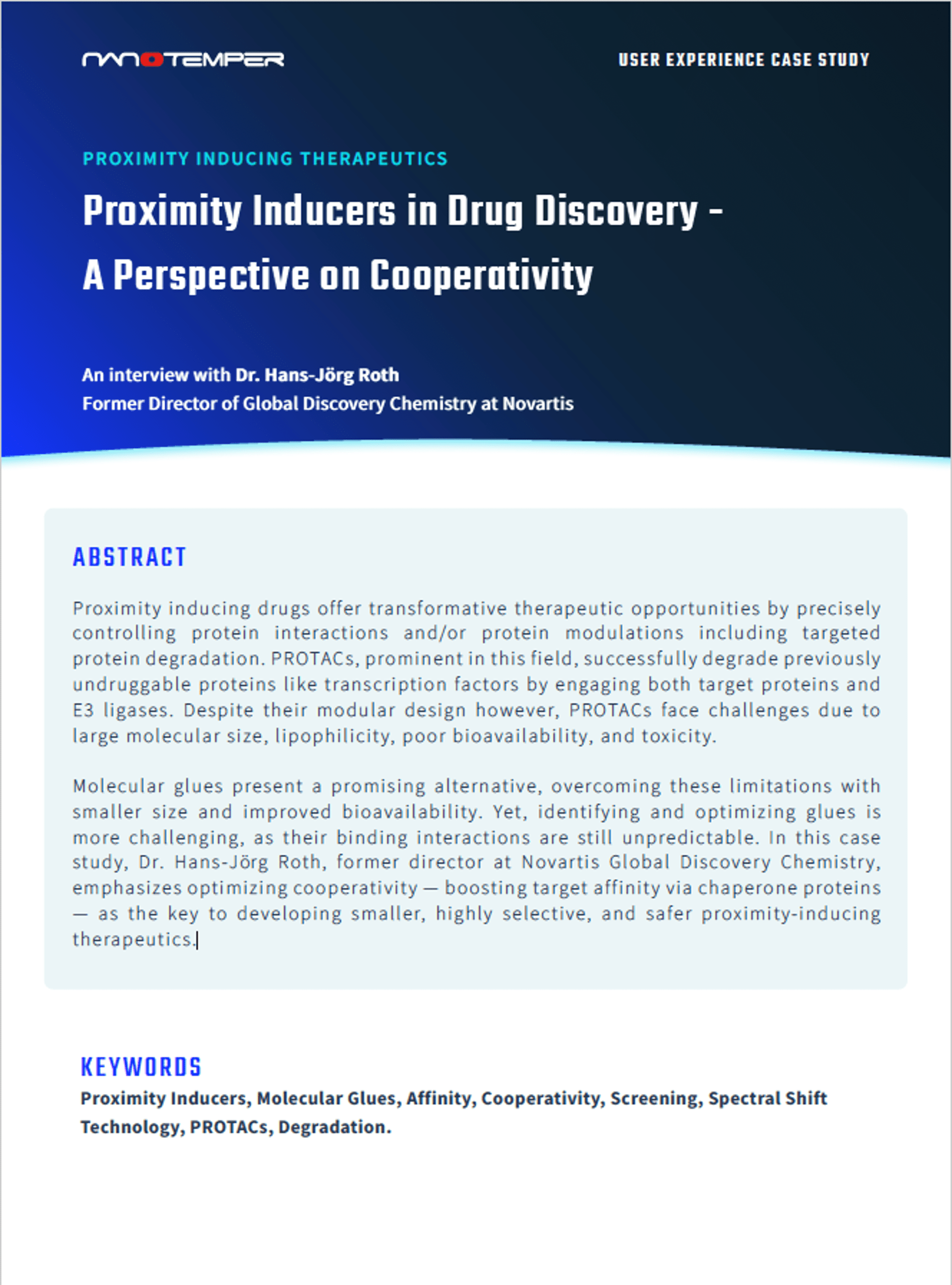Protein-sugar interactions are essential for nutrient transport and metabolism in all types of cells. Here, we investigate the interaction of maltose binding protein (MBP) and its substrate, maltose, drawing upon label-free MicroScale Thermophoresis (MST) as the ideal technique. We also show that sample viscosity did not affect the binding assay, and discuss how MST is not limited by sample viscosity.
Home
»
Application Notes
»
Interaction of maltose binding protein (MBP) with maltose in a truly label-free assay
×
Share
Have a question about Monolith?
Contact SpecialistMost recent content

Achieve Highly Sensitive and Precise Binding Affinity Measurements Without Disrupting Protein Conformation

How Pierre Fabre Laboratories enhances their antibody developability platform
Learn how Pierre Fabre uses multi-parameter stability measurements of mAb libraries on Prometheus Panta to streamline developability platforms, reducing complexity, cost, and sample consumption.

Optimization of membrane proteins for cryo-EM: Screening of copolymer nanodiscs with Prometheus Panta
Membrane proteins present challenges for structural analysis by cryo-EM; Screening of synthetic copolymers with nanoDSF and DLS on Prometheus Panta help select the best solubilization conditions.
How Merck KGaA uses light scattering measurements for better developability assessment of biologic therapeutics
Biologics developability: learn how Merck uses Prometheus Panta to create developability profiles for their mAbs
Quantifying oligonucleotides binding to human serum albumin with MST: A faster and precise approach for drug candidates ADME profiling
Fast molecular interaction screening of epigenetic gene regulator G9a with fragments from a large chemical space
Rapid Quantification of Unfolded Proteins for Quality Control and Optimization of Storage Conditions
Protein labeling – improved quantitation of biomolecular interactions by MST using the RED-NHS 2nd generation labeling kit
One-step, purification-free and site-specific labeling of polyhistidine-tagged proteins for MST
Anaerobic MicroScale Thermophoresis reveals the redox dependency of ferredoxin in mitochondrial Fe/S biogenesis




